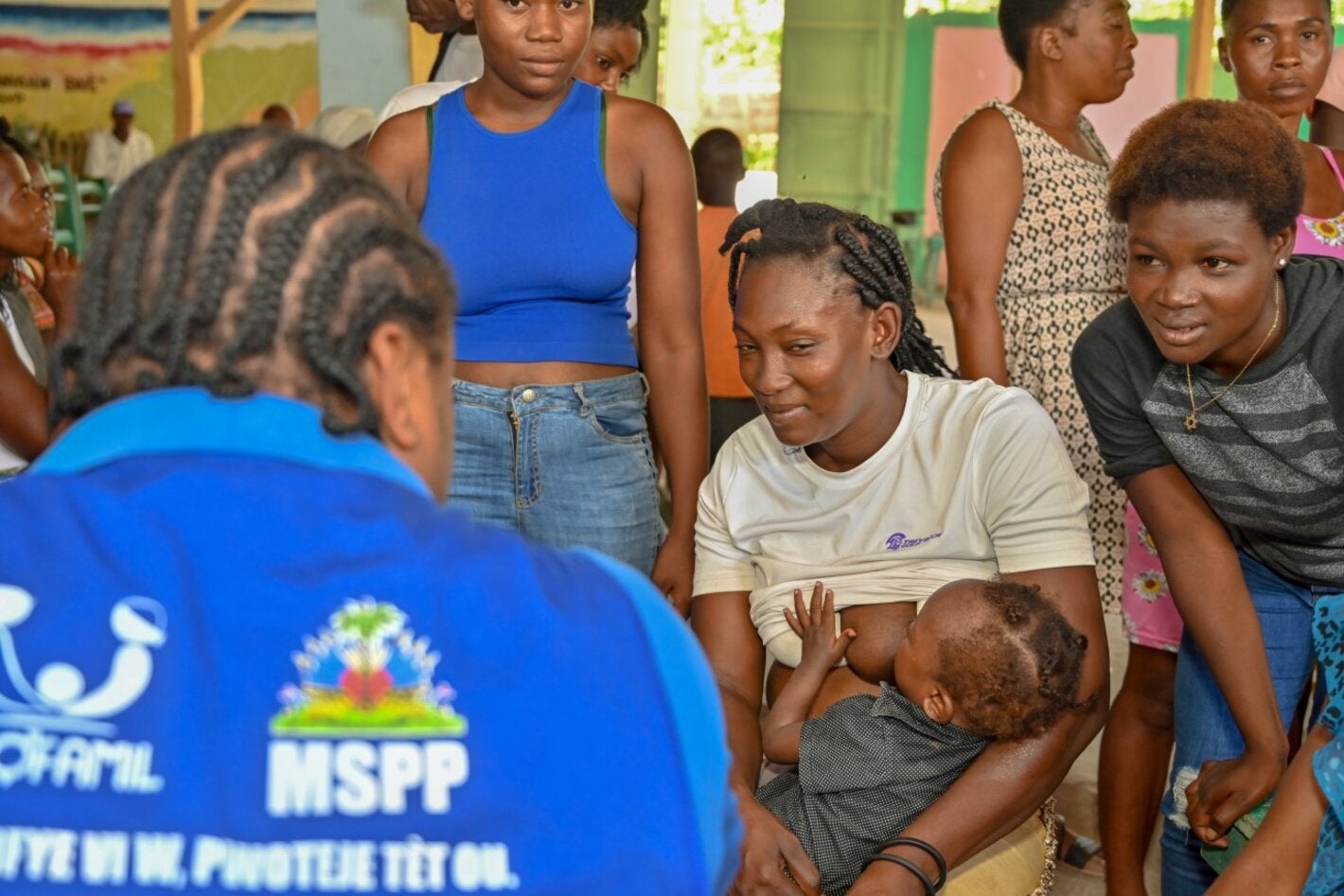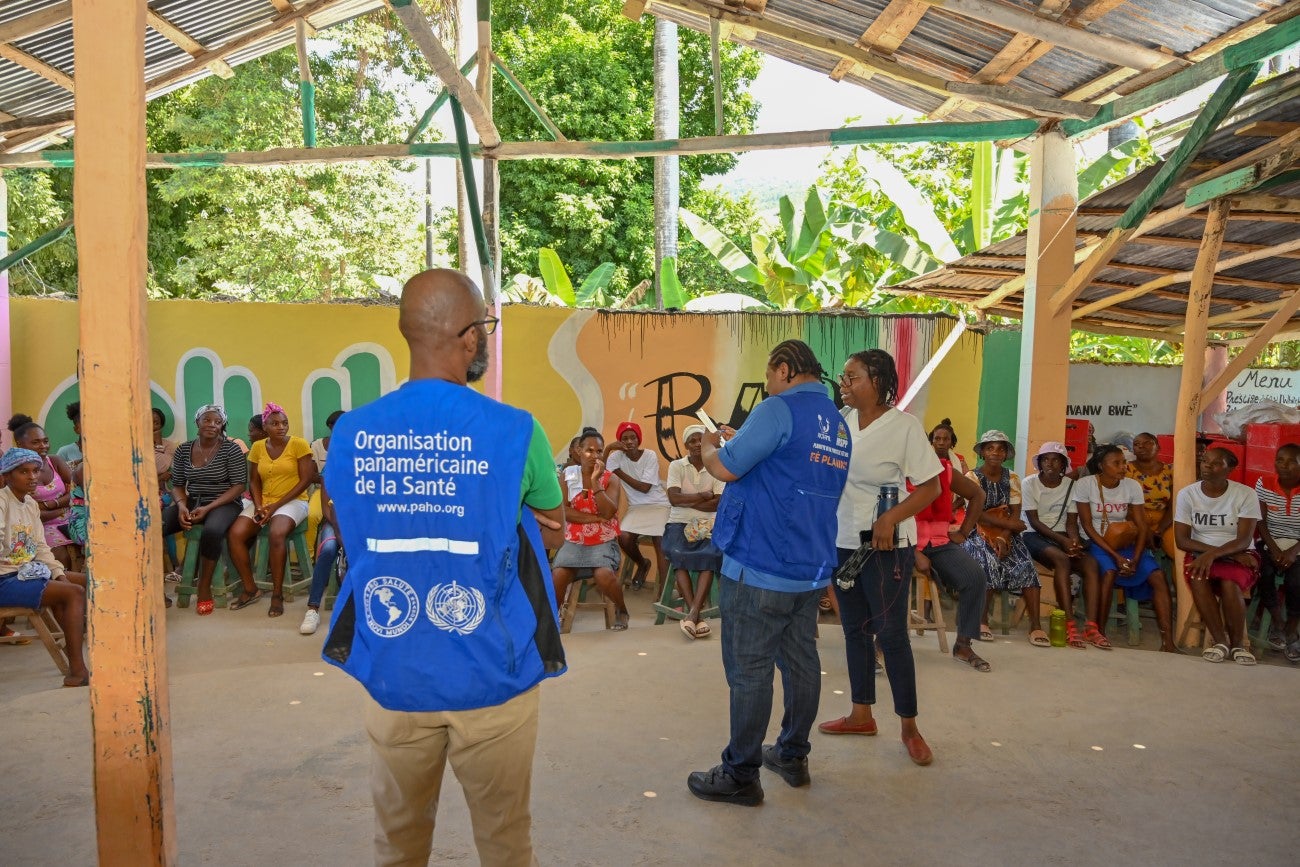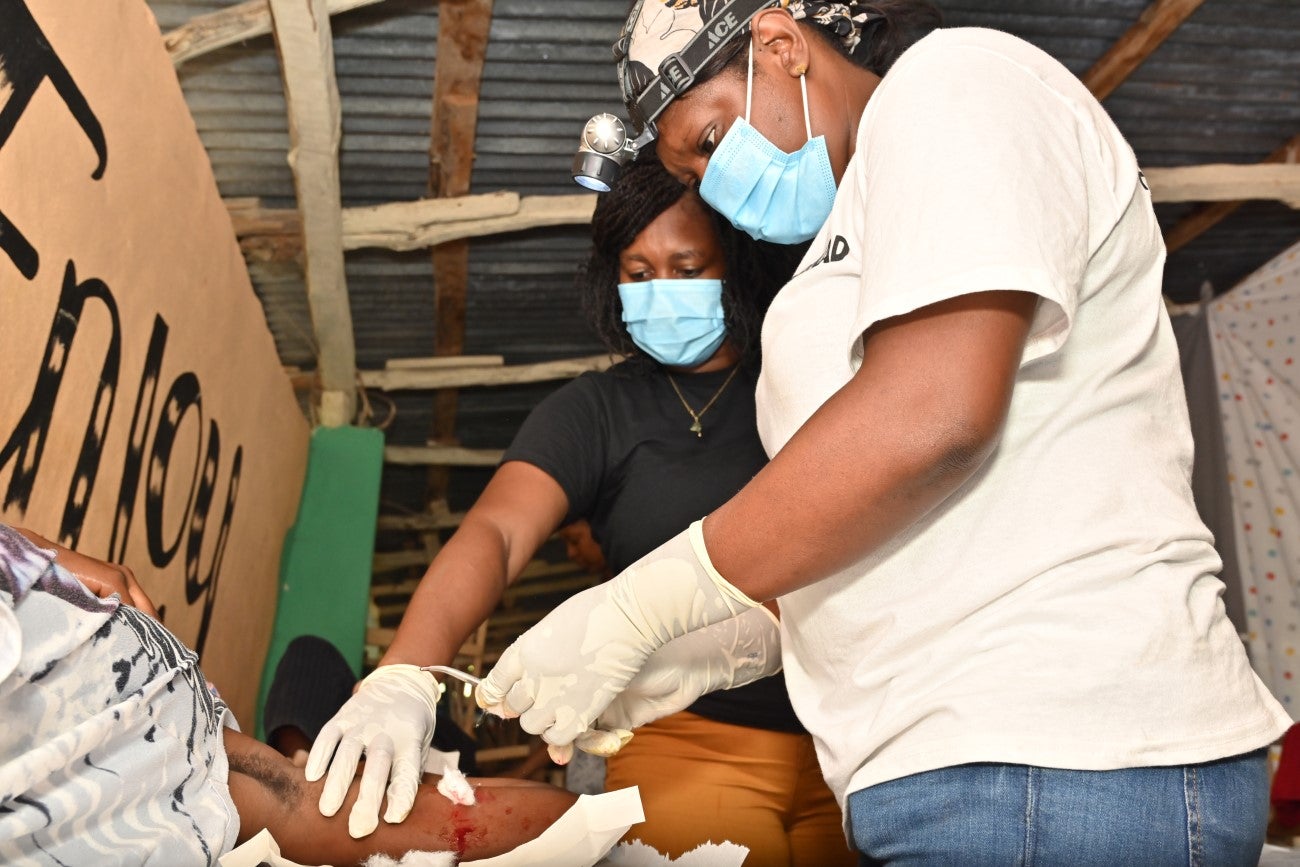
Port-au-Prince, Haiti, 18 October 2024 (PAHO) – Access to reproductive health services, including LARCs, remains extremely limited in Haiti. It is estimated that only a small percentage of women currently have access to such essential services, posing significant challenges in reducing the country’s maternal mortality rate, which is the highest in the Americas.
To address this critical gap, the Pan American Health Organization (PAHO/WHO), in support of Haiti’s Ministry of Public Health and Population (MSPP) and in collaboration with Santé Monde’s FANMKAD project, is working to improve access to long-acting reversible contraceptives (LARCs). This effort forms part of broader initiatives aimed at enhancing maternal health outcomes and ensuring equitable access to reproductive health services across the country.
Building Capacity: Training Healthcare Providers in LARCs
"We often encounter obstetric complications during childbirth, especially among women with multiple pregnancies," says Dr. Jean Judeson, head of the Centre de Santé Publique de Thiotte. "Many of these complications could be prevented through broader education on maternal and reproductive health. This training represents an important first step toward strengthening healthcare services in our community."
As part of PAHO/WHO’s technical cooperation to the MSPP, training sessions have been organized to equip healthcare professionals with the skills needed to administer LARCs, such as intrauterine devices (IUDs) and contraceptive implants. Recently, 11 doctors and midwives from the South-East department received specialized training to effectively perform these procedures.
Following the training, mobile clinics were set up to provide women with essential reproductive health services, including the insertion of IUDs, contraceptive implants, and the replacement of expired devices. For many women in underserved communities, these clinics provide the only access to reliable, long-term contraceptive methods.
Overcoming Fears: Empowering Women Through Education
"I’ve used a contraceptive method that lasted seven years without any problems. Today, I chose one that lasts 10 years," says Ms. Rosemene Rosme, one of the beneficiaries at a mobile clinic. "Many women are afraid of long-term contraception, believing it causes serious side effects. But during the information session, I learned that there’s nothing to fear."
The outreach clinics not only provided contraceptive services but also aimed to dispel common misconceptions about long-term contraceptive methods. Women like Ms. Rosme received both services and crucial information, empowering them to make informed choices about their reproductive health.
PAHO/WHO’s support goes beyond training and supplying contraceptives. It fosters an environment where every woman in Haiti can make informed decisions about her reproductive health. By expanding access to family planning services and long-acting contraceptives, PAHO/WHO is helping to promote women’s autonomy, health, and well-being.
This initiative is are made possible through the Universal Health Coverage Partnership (UHC-P), a key component of WHO’s Special Programme on Primary Health Care. The UHC-P is supported and funded by WHO, the European Union, the Grand Duchy of Luxembourg, Irish Aid, the Government of Japan, the French Ministry for Europe and Foreign Affairs and the UK, Department for international Development.





